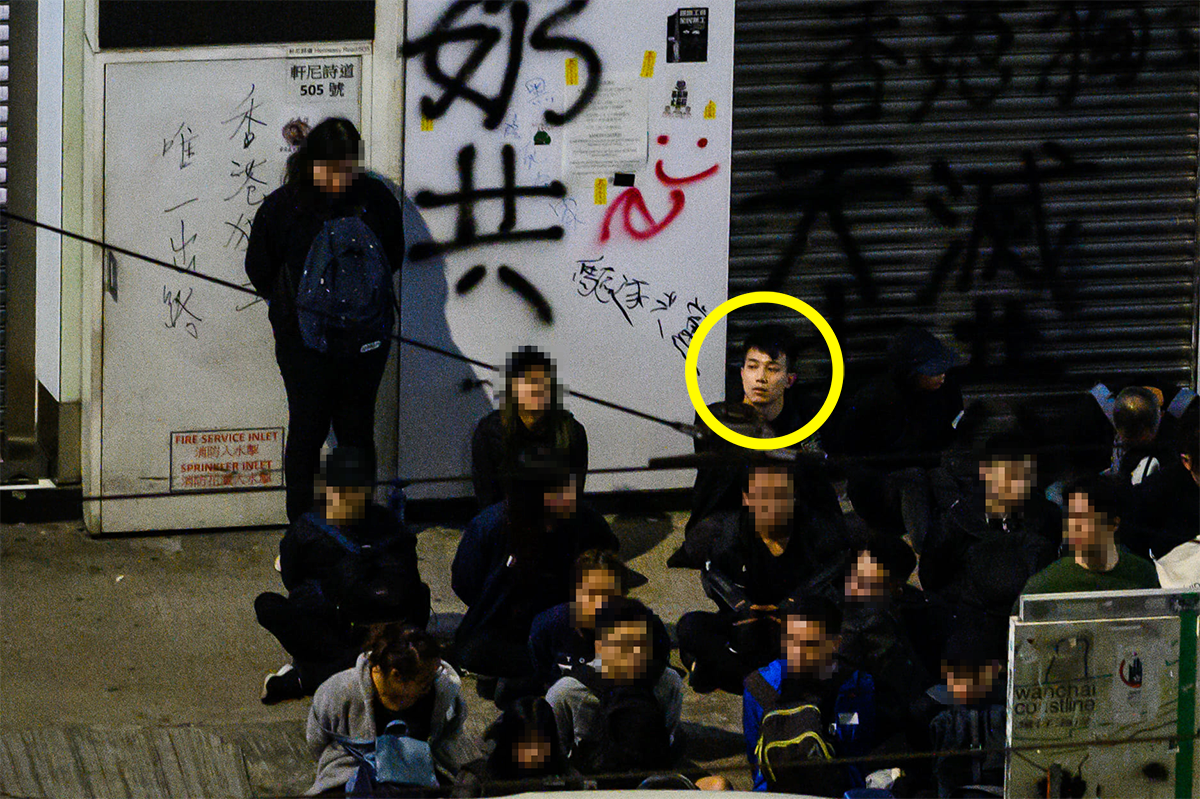When a man asked former Hong Kong activist Finn Lau for his identification papers at an anti-China protest he was organizing near his new home in Britain, Lau grew suspicious. The man claimed to be a security officer for the UK Parliament members in attendance. He refused to comply and later learned that Parliament had never sent such an officer to the protest, he told Capital News Service in a recent interview.
Another time, Lau, who fled Hong Kong in 2020 after being threatened with imprisonment, was ambushed and beaten by three men along the route he walked every day.
He believes both incidents involved Chinese agents sent to intimidate him and force him to stop his anti-China activism. “They might want to imply that Big Brother is watching us closely, although we are in democratic countries,” Lau said, who has suffered from severe depression and PTSD.
The experiences, however, “simply elevated my level of determination, in that it makes me understand how far I am willing to go to free Hong Kong,” he said.
Lau, 28, is part of a diaspora of 500,000 Hong Kongers who began leaving the former British colony in the years since it was handed over to China in 1997. At least 90,000 have fled in the last three years, according to US News and World Report, after China imposed new restrictions on free speech, assembly and independent journalism.
Lau and other former Hong Kongers in exile told CNS they believe China is harassing them to prevent a pro-democracy rebellion from being organized or led from abroad. Most have settled in Taiwan, Canada, Britain or the United States.
The intimidation, real or perceived, sometimes works, said Eric Yan-Ho Lai, a Georgetown PhD candidate and former Hong Kong resident, who said his compatriots typically avoid getting involved in public protests.
“It is my understanding that they feel unsafe if they participate in rallies, or protests against China or Hong Kong,” said Lai. “Maybe because some of them feel the Chinese Embassy is observing or monitoring them.”
Many also have relatives in Hong Kong they worry about. Mark Simon, a former top aide to imprisoned media mogul Jimmy Lai, said exiles abroad use encrypted forms of communication hoping to keep their relatives safe.
“That’s the strength of the Chinese repressive system,” Simon, who lives in Taiwan, told CNS. “There’s always somebody that they can reach out and touch. Everybody’s got a cousin. They got a brother. They got somebody who’s back there.”
The End of Hong Kong’s Freedom
Since the turnover to China, the Basic Law had served as Hong Kong’s de facto constitution, allowing for more liberal freedom of assembly and press practices than in mainland Communist China. Under the law, pro-democracy news outlets such as Jimmy Lai’s popular Apple Daily, Citizen News and Stand News could even criticize policies in China.
But in 2019, a proposed bill that would allow the Hong Kong government to consider extradition requests from any country—including China—resulted in widespread pro-democracy protests. After months of unrest, Hong Kong Chief Executive Carrie Lam withdrew the legislation. But protests only escalated and evolved into a pro-democracy movement demanding police accountability and direct universal suffrage of Hong Kong’s Legislative Council.
Chung Ching Kwong, a Hong Kong political activist exiled in Hamburg, Germany, said the 2019 protests were unprecedented in the territory’s history;whereas earlier protests were organized by individuals, protests in 2019 were what Kwong called a “leaderless movement” organized using social media and encrypted messaging apps.
“The core issue of Hong Kong is… there isn’t a functioning legislature or a structure in general that you can actually get what you want through means within the system,” said Kwong, who had participated in the protests.
In response, in June 2020 the Chinese government passed the National Security Law. The law takes a broad interpretation of crimes such as “secession,” “subversion” and “collusion with foreign organizations,” each of which can result in life imprisonment. From July 2020 to the end of March, 2022, more than 180 people – including journalists, activists and private citizens — have been arrested in Hong Kong for national security crimes, according to arrest data compiled by ChinaFile, a publication of the Asia Society.
Ramifications on Diaspora Communities
Alex Chow, 31, a former political activist imprisoned in 2017 and now living in Washington, said the national security law abruptly ended the protests. “The Hong Kong government used that law to wipe out almost every liberal institution in Hong Kong.”
While in Hong Kong’s Pik Uk Prison, Chow said he discovered a range of sentiments towards the Hong Kong democracy movement. Some guards would bring him lemon tea as a sign of respect, he said. Some prisoners told him that they shared his views but were too afraid themselves to speak out, he said.
But Chow said much of his time in prison was filled with heartache. “I still remember when my mom visited me while I was serving my sentence,” Chow said. “Before she even sat down, she cried.”
Even living in Washington, Chow said many in the diaspora remain fearful of Chinese authorities. “I wouldn’t say we feel safe 100%. I think we are always in constant fear, and have to stay cautious.”
Looking Ahead
Chief Executive Lam is not seeking a second term. Chief Secretary John Lee, who ran for the position unopposed and won with over 99% of the vote from a pro-Beijing committee, is slated to take the helm in July.
“[Lee] has been groomed on the mainland by mainland security forces for decades,” Mark Clifford, president of the Committee for Freedom in Hong Kong, told CNS. “I would expect things would be worse rather than be better.”

